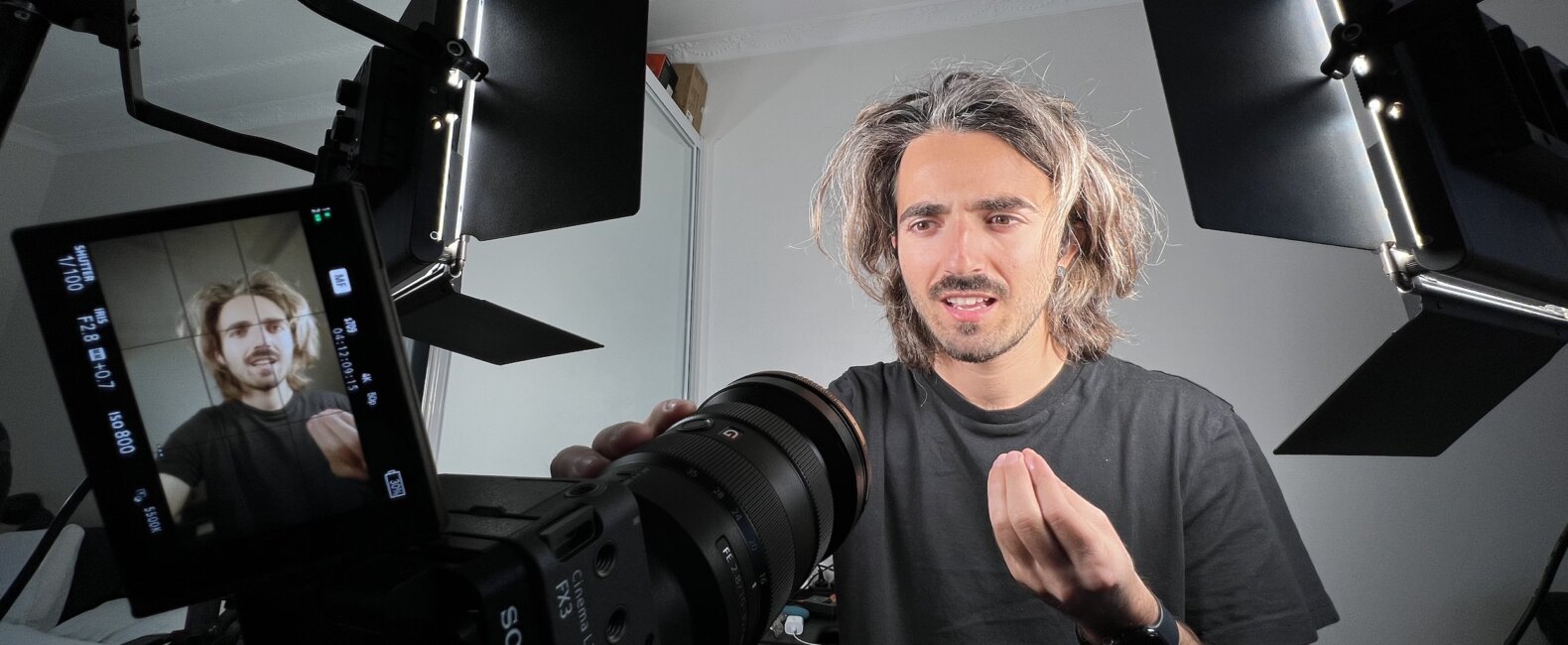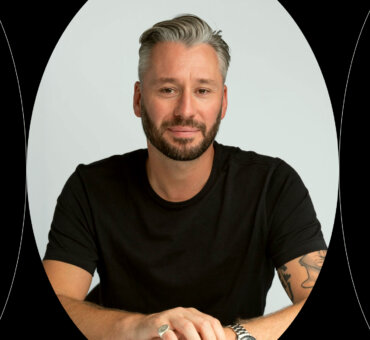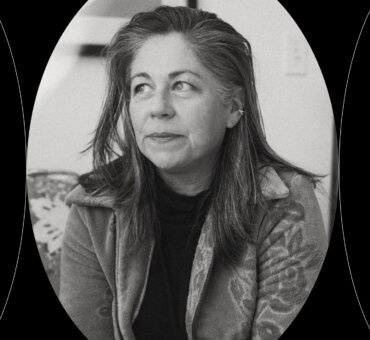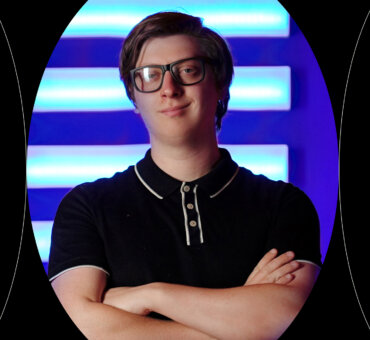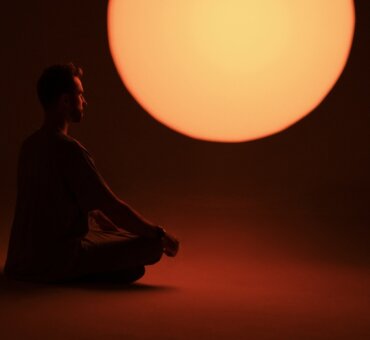Italian content creator Roberto Ricotta turns stories from ordinary to extraordinary on his YouTube channel. Hear more from the Sydney-based creative on what sparked his passion for film and how he utilizes Musicbed to elevate his storytelling.
Musicbed: What is the most challenging aspect of being a filmmaker/creative?
Roberto Ricotta: The most challenging aspect of being a creative is trying to outsource all the work, tasks, and activities that are not creative. It’s really hard because usually creatives are a one-man band and it’s really hard to outsource and find someone with the same values as you. The challenge I never think of is creating, having ideas, or stuff like that, because if you’re someone who works with ideas, the more ideas you make, the more ideas you’re gonna have every day. The challenge is to keep yourself in a positive mindset, where your brain never stops creating ideas. And sometimes what stops these is all of the other tasks, all of the stuff that isn’t creative, like answering emails, marketing, dealing with people. Sometimes it’s part of the job to keep track of this and try to not make this too much. I reckon I’m still looking for someone to help me with all of the other stuff, but this is the biggest challenge of the job I created because we are really good at creating, but sometimes I don’t want to talk with all the creatives. Sometimes I’m not really good with all the rest. And I reckon even after 15 years, I’m still learning something.
What sparked your passion for filmmaking/storytelling?
I started making videos and telling stories when I was a kid. I was like, I don’t know, 11, 12 and I created my YouTube channel with some friends. And the reason why I started telling stories was because I felt the need to tell what was going on in my city. I was kind of passionate about news and documentaries and so the very first video I created was because I wanted to tell the story of my family. There was something that wasn’t working in my city, and I was an 11-year-old teenager who was trying to reach the council to make a little bit of a change. So my passion started from the need to make a change in society with the small things of storytelling for me. It’s a weapon that they can empathize with more as a message, and later on in my career, that’s why I ended up working for one of the most famous TV shows in Italy. And on that show is basically what I was doing trying to do with the storytelling—to spread the messages that’s what I think is the spark of my passion.
What keeps you motivated and creatively inspired?
What keeps me motivated to create is the reaction that people have when they see my work. What I realized is that when I make a video, especially on my YouTube channel because that’s where I have a bigger audience, I realize that then when I meet people in real life sometimes I notice that they did something in their life because of one of my videos. So definitely what keeps me inspired is keeping track of what I do and the stories I tell on my public diary, which is YouTube, but then it’s also inspiring and helping others, achieve their goals through the inspirational stuff and storytelling that I do on my channel.
What makes a story visually appealing? What role does music play in storytelling?
The main factor that I think makes a story visually appealing is seeing something true. I’m not a Hollywood filmmaker. I don’t do fiction. What I do is mainly focused on content creation for social media and storytelling about ordinary stories and people. What I try to do is make the ordinary stories extraordinary and what I think is visually appealing is just seeing simple things—not crazy stuff. I think that our eyes are too much—especially with all this AI and stuff—if you see something that looks authentic, just a simple headshot with natural light or something. Even imperfect, I think that’s what’s really appealing. And music is just the thing that gives a kind of soul to this story at least. Because pictures without music are missing something. I think the music is the real soul of the story. What I like about Musicbed and what I like about the music that I can access every day. I can find classical music, alternative music—it’s never too much and when it needs to be too much it does it in a way that always feels accompanied by the visuals/storytelling. It’s never like too much, it’s never because music needs to be really good to be in the storytelling. What I think that music needs to have is kind of a balance between too much and too little. If you have something too much, it’s going to negatively impact your visual storytelling. If it’s too little, it’s not going to give enough soul to the storytelling. If it’s in the middle, which is usually what I find on Musicbed, that’s the perfect match.
What elements do you think are essential for crafting a compelling story?
The essential element to create a compelling story is the truth. If you’re telling something true, and people get it, that people understand that it’s true, then if you start from there and you just follow a basic storytelling art, you can follow the hero’s journey. If you follow something that has a bit of a structure and you’re starting from a real story, I think that that’s the most important thing. Nowadays, especially on social media, the real trend in 2024 is your story, not something fake that doesn’t exist. Unless you’re making movies, but that’s not what I do. I’m a content creator, so I think the most important element to crafting a compelling story is the truth. Then you can kind of give a little bit of a highlight at the beginning of the video, then play a little bit with some storytelling tricks and a bit of editing, a bit of music here and there. But yeah, the crucial element is the truth.
How important is music in your work?
Music is crucial in my work. It’s funny because it’s always the thing that I do last in the editing process because I like to see what my video looks like without the music. Trying to make it as perfect as possible because then I know that once I add the music at the end, it’s going to become ten times better, and it’s gonna satisfy me. It’s crucial because with music, especially when I try to put some funny sections or a bit of a contrast in a dramatic scene, or what I’m talking about something like oh, I’m telling a story, that it’s really intense. I reckon the music is the one that makes you feel—that hits your heart and your soul. Without music, you can still do storytelling but it doesn’t hit as much as with music.
How do you find the balance between pushing boundaries creatively and delivering what your client wants or audience wants to see?
I’ve been struggling with this for ages. I’ve been working as a video maker for others for more than ten years. In the past, I was struggling a lot with trying to create something that was satisfying creatively for me. But then dealing with all their requests and now in 2024, I’m lucky enough because I have an audience and a strong personal brand. I’m lucky enough that what I try to do is create content online and educate people about my type of storytelling, which is like kind of everyman storytelling, so people that reach out to me, which is the main way how clients find out about me. Usually, they trust me 99%, but sometimes I need to deal with some challenges. If someone comes to me and tells me something that it doesn’t really match with what works (because I know what works after 15 years of making videos), I try to let them think about it and explain to them that that’s not the right choice. But sometimes it happens that the client tells me totally another thing compared to what I just delivered. In that case, it means that I didn’t do a good job as a storyteller. It means that I didn’t listen enough to their story and their intention of telling their story. It happened to me a couple of times and I just started all over again. I reckon being humble and—if you have a lot of good quality clients—it’s the solution to keeping your mind sane when something like this happens.
What’s your favorite project that you’ve worked on?
My favorite project that I’m working on is creating content for people here in Australia, where I just moved a couple of years ago. So in all these years, I was always struggling to find amazing stories and tell those stories. But then I realized that what makes me more satisfied and what I like the most is a story. Normal stuff. At the end of the day, we are all normal people and we all have the same struggles. I love telling ordinary stories in an extraordinary way. I love the Everyman archetype of storytelling. So my favorite projects so far that I love are the most recent ones because I’m trying to do them and it’s working on what I did on myself. I’m just a normal guy who is passionate about storytelling and video making and I created a big audience because I was just telling my story in an extraordinary way. But I had a really normal story—a person with struggles like all the other ones. I’m not a superhero, I’m just an everyman. I’m applying the same thing to all my recent clients of my new business in Australia and that’s what I love. In the past, my favorite projects of course were the ones on TV. Those were the ones that were seen by millions of Italians and it’s always satisfying seeing your work shared by lots of people. But the one that is giving me the most is the one that I’m doing now. I’m sure that the more I go further and further away, the more satisfied I’m going to be because I’m still testing, I’m still creating, I’m still discovering new talent, and I’m still discovering new talents.
How do you search for music on Musicbed? What are some tips that you’d give other filmmakers to search on Musicbed?
At first, I was just putting in all the music from the What’s New playlist. But then after years and years and years of using music from Musicbed, I understood the genres that I love using in my music videos and my storytelling. Classic, which is the one that I use for like calm scenes and parts of the videos where I’m just telling something funny sometimes. I’m just being calm, you know, it’s just a kind of a flat part of the story. And then Alternative music. Another tip: download more music than you need. When you have more, it’s always a good thing. Like having the possibility of choosing during the editing—it’s crucial.
Why do you utilize Musicbed in your work?
I use Musicbed because it’s the best quality out there. It sounds so professional. And there’s a lot of music. I tried other platforms in the past and the main problem was that after scrolling a couple of playlists, you were still listening again and again and again to the same songs over and over and over. With Musicbed, this never happens and as I mentioned in the previous answer I reckon quantity combined with quality is the key to success with storytelling.
—
Explore Roberto’s curated playlist of his favorite songs to use in his films—all available to license only on Musicbed.















































































